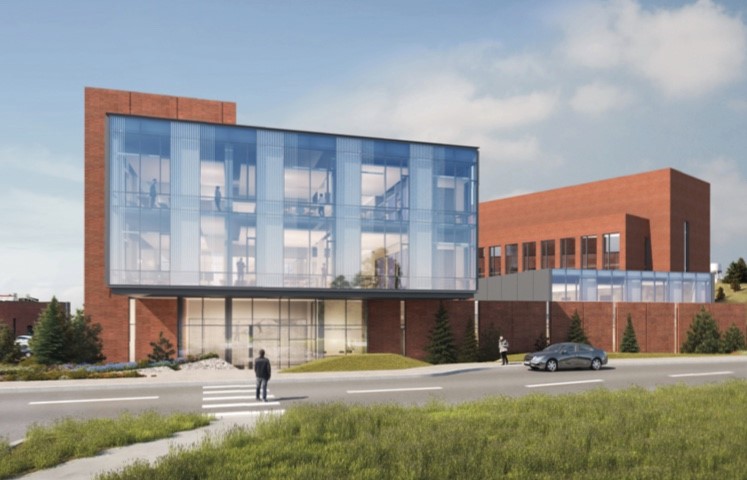Washington State to expand veterinary diagnostic lab
New wing of Paul G. Allen School for Global Animal Health to open in early 2021.
October 16, 2019

Construction of the future home of the Washington Animal Disease Diagnostic Laboratory (WADDL) at the Washington State University College of Veterinary Medicine will continue, thanks to final approval of its $61.3 million budget, the university announced Oct. 16.
The construction will create a new wing of the Paul G. Allen School for Global Animal Health, where WADDL scientists will conduct detection and surveillance programs. The new facility will strengthen and expand the capacity and capability of WADDL as a critical resource for the state, region and nation, ensuring that Washington state remains an industry leader in disease surveillance for animal and public health, diagnostics, research and education on a global scale, the university said.
The university's board of regents approved the Global Animal Health Phase II budget at its Sept. 20 meeting in Pullman, Wash.
WADDL is the only animal health diagnostic laboratory in the state officially sanctioned and funded to provide comprehensive animal, food and environmental surveillance, according to the announcement. Since 1974, WADDL’s testing demand has increased more than 250%, with 2.5 million tests conducted in the last 10 years, the university said. As such, WADDL is a critical health resource for food animal production agriculture, veterinarians, companion animal owners and other state and federal agencies, including the Washington State Department of Agriculture, Washington State Department of Health, U.S. Department of Agriculture, Food & Drug Administration and Centers for Disease Control & Prevention.
Global Animal Health Phase II will also house research and development labs and serve as a teaching lab for veterinary medicine students, postdoctoral students and other health professionals, as well as graduate and undergraduate students, Washington State University said. It will be connected to the Allen Center, which houses the school’s global animal health research programs.
Original funding for the project dates back to 2015, when the board of regents approved $1.9 million in Washington State College of Veterinary Medicine self-funding toward early design costs. The university then received $23 million from the Washington legislature in the 2017-19 biennium and an additional 36.4 million in the 2019-21 biennium to complete the project, bringing the total budget to $61.3 million, the announcement said.
When completed in early 2021, the WADDL facility will provide the enhanced workflow, biosafety and biosecurity required for increased testing capacity, discovery and regulatory compliance.
The Paul G. Allen School for Global Health was originally established in 2008 as the School for Global Animal Health. It was renamed following a $26 million donation from Paul G. Allen. The school is a global leader in animal health and the research of zoonotic disease transmission between animals and humans. Its faculty and staff are working on such efforts as eliminating rabies, tackling antimicrobial resistance and decoding the pathogenesis of zoonotic diseases.
Source: Washington State University, which is solely responsible for the information provided and is wholly owned by the source. Informa Business Media and all its subsidiaries are not responsible for any of the content contained in this information asset.
You May Also Like


.png?width=300&auto=webp&quality=80&disable=upscale)
